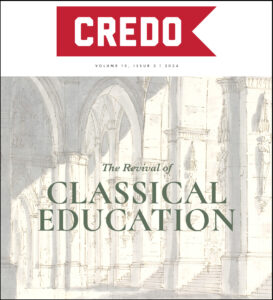John Calvin was one of the most influential figures of the Reformation era in the 16th century. It is surprising that the Reformer’s first published work was not in theology, but in classical Roman literature. Calvin published his Commentary on Seneca’s De Clementia in Paris in 1532[1], which was 4 years prior to the publication of the first edition of the Institutes of the Christian Religion, his main work, in 1536. The Commentary was Calvin’s commentary on Lucius Annaeus Seneca the Younger (4 BC-65 AD), the Roman philosopher’s work, De Clementia. Seneca was also known to be the tutor of Nero Claudius Caesar Augustus Germanicus (37-68 AD), the Roman Emperor. Seneca wrote De Clementia in 55 AD addressed to Nero as a tutorial in the virtue of clemency.
Calvin wished to show the intellectual world his ability as a classical scholar with the publication of his Commentary.[2] However, when the book was published, it didn’t make as much of an impression on the intellectual community as he expected.[3] Calvin came to public fame only after the publication of the Institutes. Calvin’s Commentary did not bring him the public recognition he wanted. However, as providence goes, God had the Reformer dwell for a time in the school of classical studies in writing his Commentary before he got to his theological works. We can imagine what influence the classical work would have had on the Reformer’s thought and style. The classical studies became a school and a training ground for the Reformer. And it was just the kind of schooling God had provided for him.
While spending his time in the school of classics, Calvin found a hidden treasure, which was Seneca. In Calvin’s time, Cicero (106-43 BC), the Roman statesman and philosopher, was thought to be the insurmountable top of classical Roman literature. Seneca was often disparaged in style and writing compared to Cicero. Calvin came to have a different opinion after reading Seneca. Calvin read Seneca for himself and found Seneca to be a man of great learning and eloquence. Calvin especially commended Seneca’s ability to deal with ethical matters. Seneca had a good command of logic and also had vast historical knowledge to back up what he said. Calvin admits that Seneca had his own faults, like the verbosity of the language and orderly arrangement of matter. However, Calvin thought Seneca was only second to Cicero as a philosopher and a writer.[4]
We need the ability to think in order to gain insights from what we learn. Click To TweetWhat can a student learn by reading classical works like Seneca? Calvin identifies Seneca to be a great philosopher and writer. By studying the work of a good philosopher, one can learn how to think. A good education teaches students how to think for themselves. As Christians, we have the Bible and our faith traditions to learn from. However, it is also important to draw new insights from Scripture and tradition and apply them to our daily lives. We need the ability to think in order to gain insights from what we learn. Also, students can learn to write well by reading the works of a good writer like Seneca. The ability to write does not spring out of a vacuum. The ability to write comes from a careful reading of the works of great writers.
Also, a student can learn from classical works like Seneca what constitutes good Christian character. Classical education in a Christian sense instructs students in Christian character. Philippians 4:8 tells us to meditate on what is good Christian character: “Finally, brothers, whatever is true, whatever is noble, whatever is right, whatever is pure, whatever is lovely, whatever is admirable–if anything is excellent or praiseworthy–think about such things.” Galatians 5:22–23 tells us to bear good Christian character as the fruit of the Holy Spirit: “But the fruit of the Spirit is love, joy, peace, patience, kindness, goodness, faithfulness, gentleness and self-control. Against such things there is no law.” A good Christian classical education instills such values in students.
Calvin looks to Seneca as a school of character. Calvin commends Seneca’s expertise in ethical matters. What Seneca deals with in his Commentary is the virtue of clemency, which he seeks to teach Nero, his student.[5] Clemency is showing pardon to those who have committed crimes. Seneca beseeches Nero to show pardon and mercy equally to people of all statuses and positions, be they young or old, high or humble.[6]
The virtue of clemency is related to the fruit of love and kindness among the fruits of the Holy Spirit. According to Seneca, while clemency is a virtue everyone must have, it is especially befitting for an emperor.[7] The emperor must have the virtue of clemency because he binds the whole empire as one, and he is the embodiment of the Roman empire. For this reason, every citizen in the empire sacrifices oneself and “turn their breast to the wounds”[8] to protect the emperor. In return for such loyalty, the emperor must have love and mercy on every single one of his subjects.[9]
The virtue of clemency is also related to the fruit of self-control. It is easy for a person of low status to control his power because he does not have much power to wield. However, it is extremely hard for a person in a high position like the emperor to control himself and show temperance when using his power. The emperor must keep his sword sheathed and keep himself from making arbitrary use of his power in order to show clemency. The virtue of clemency demands such self-control in its exercise.
A good classical work like Seneca’s De Clementia also points to Jesus Christ our Savior. One of the reasons Seneca gives for the need for clemency is that all have sinned:
We all have sinned–some in serious, some in trivial things; some from deliberate intention, some by chance impulse, or because we were led away by the wickedness of others; some of us have not stood strongly enough by good resolutions, and have lost our innocence against our will and though still clinging to it; and not only do we do wrong, but we go on doing wrong to the very end of life.[10]
In expounding the need for clemency, Seneca shows that all have sinned and need a Savior. Click To TweetCalvin elaborates on the above passage in his Commentary thus: “Although the transgressions of all are not equal or similar, still we all have sinned. Some have sinned out of deliberate ill-will, others out of inconstancy; some more seriously, others more lightly.”[11] The reason Seneca thus gives for the need for clemency touches on the doctrine of sin as shown in Romans 3:23: “For all have sinned and fall short of the glory of God.” The doctrine of sin shows that human nature is depraved as a result of the Fall of Adam and that all humanity is in a sinful state and in need of a Savior. In expounding the need for clemency, Seneca shows that all have sinned and need a Savior.
Seneca also helps us understand the saving work of Jesus Christ. In De Clementia, Seneca shows why it is especially befitting for the emperor to show clemency. Seneca shows from the example of Augustus, a Roman emperor and an ancestor of Nero, how showing clemency helped Augustus secure his throne during his lifetime and also kept his reputation alive after death.[12] As we listen to Seneca explain how showing clemency is befitting for a king, we suddenly come to an understanding of why it is so befitting for Jesus Christ, the King of Kings, to show mercy and forgiveness on the cross. Many Christians have trouble making sense of how Jesus can be King and also die on the cross in weakness. Seneca helps us understand how it is fitting for the King of Kings to show mercy and why showing forgiveness on the cross is a kingly thing to do.
Notes:
[1] John Calvin, Calvin’s Commentary on Seneca’s De Clementia, trans. Ford Lewis Battles, (Leiden; E. J. Brill, 1969), 3.
[2] Raymond Blacketer, in The Calvin Handbook, ed. Herman Selderhuis, (Grand Rapids, MI: Eerdmans, 2009), 181.
[3] Bruce Gordon, Calvin, (New Haven: Yale University Press, 2009), 30.
[4] Calvin, Calvin’s Commentary on Seneca’s De Clementia, 9-11.
[5] Calvin, Calvin’s Commentary on Seneca’s De Clementia, 19.
[6] Calvin, Calvin’s Commentary on Seneca’s De Clementia, 21.
[7] Calvin, Calvin’s Commentary on Seneca’s De Clementia, 77.
[8] Calvin, Calvin’s Commentary on Seneca’s De Clementia, 97
[9] Calvin, Calvin’s Commentary on Seneca’s De Clementia, 107.
[10] Calvin, Calvin’s Commentary on Seneca’s De Clementia, 123.
[11] Calvin, Calvin’s Commentary on Seneca’s De Clementia, 129.
[12] Calvin, Calvin’s Commentary on Seneca’s De Clementia, 149-154.
Photo credit: Tima Miroshnichenko



